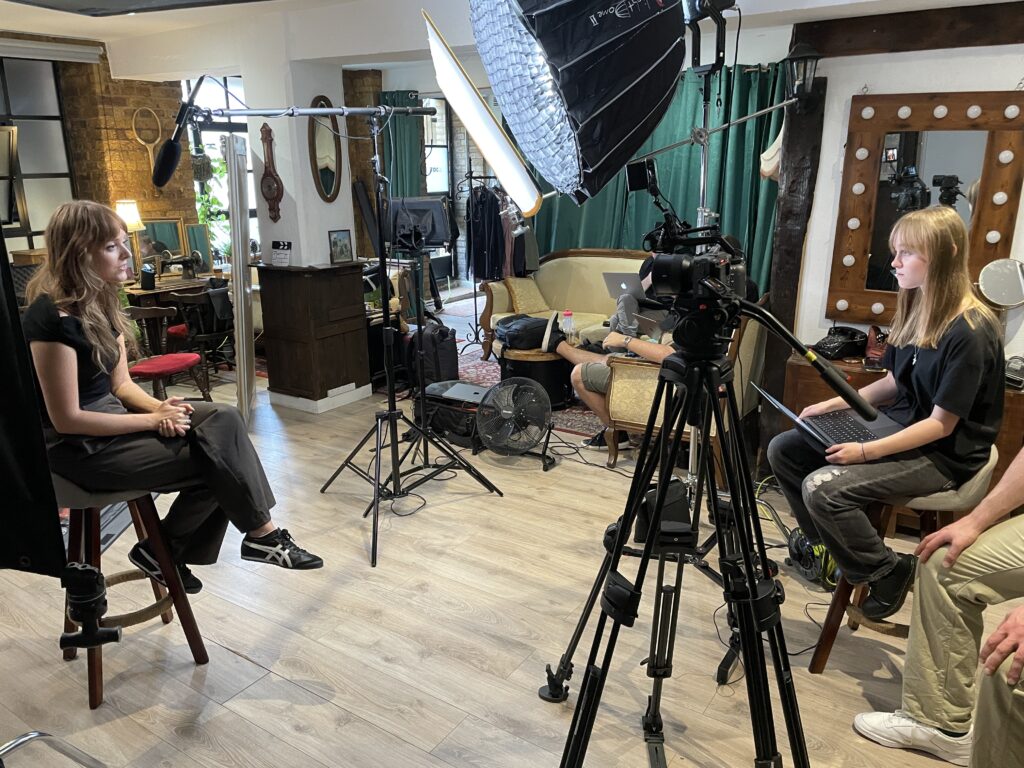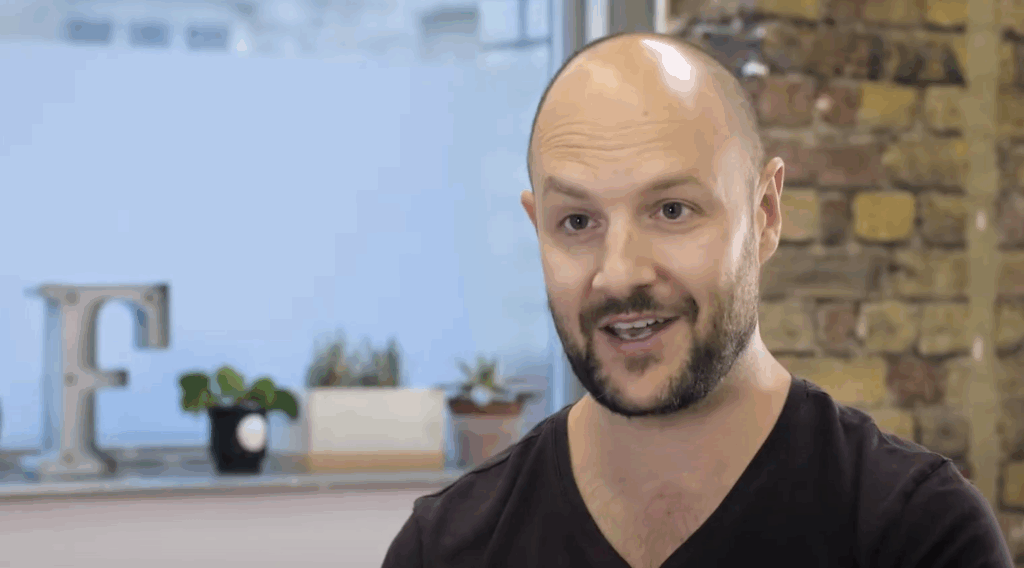In today’s digital age, video content has surged to the forefront of marketing strategies across all industries. This rise can be attributed to the compelling, engaging nature of video, which can convey complex messages succinctly and evoke emotional responses from viewers. Studies show that consumers are more likely to purchase a product after watching a related video, illustrating the powerful impact of video on decision-making processes.
Enter the video production company: a pivotal player in the crafting of these influential visuals. Specializing in the end-to-end creation of video content, these companies play a crucial role in both the media and business landscapes. From planning and scripting to shooting and editing, video production companies translate abstract ideas into concrete, impactful visual narratives. Whether it’s a brief commercial or a detailed documentary, these companies harness creativity and technical expertise to produce content that not only tells a story but also aligns with the strategic goals of their clients, thereby amplifying brand messages in an increasingly crowded digital marketplace.

What is a Video Production Company?
A video production company specializes in creating video content from the ground up. These companies are equipped to handle every stage of the video creation process, from initial concept development through to final edits, enabling them to produce polished, professional videos that effectively communicate their clients’ messages.
Key Services Offered:
- Concept Development: Working with clients to develop an idea that suits their objectives, target audience, and budget.
- Scriptwriting: Crafting narratives that engage viewers, convey messages clearly, and align with the brand’s voice.
- Storyboarding: Visual planning of the video scene by scene to ensure a coherent and effective visual flow.
- Filming: Capturing high-quality video content using professional equipment and skilled technicians.
- Editing: Combining footage, adding transitions, and fine-tuning the pace to enhance storytelling.
- Sound Design: Incorporating music, voiceovers, and sound effects to enrich the audiovisual experience.
- Post-Production: Including color correction, graphics, and special effects to polish the final product.
- Distribution: Assisting with the strategy and channels for video distribution to reach the intended audience effectively.
Types of Video Content They Produce:
- Commercials: Short, compelling videos aimed at promoting a product, service, or brand, designed to capture attention quickly and inspire action.
- Documentaries: Longer form videos that explore topics or tell stories with depth, often used to educate or engage on a deeper level.
- Corporate Videos: These include company overviews, training videos, and internal communication materials that help in building brand identity and conveying corporate culture.
- Event Videos: Coverage of significant events like conferences or product launches, capturing highlights and key moments.
- Educational Videos: Designed to inform and teach audiences about specific topics using clear visuals and easy-to-understand content.
- Music Videos: Artistic visual representations of songs, which are highly stylized and focus on creativity and expression.
- Explainer Videos: Short, informative videos that explain products, services, or concepts in a straightforward, engaging way.
By providing these services, video production companies help brands to not only inform and entertain their audiences but also connect with them on an emotional level, fostering deeper engagement and loyalty.
The Video Production Process
The creation of video content is an intricate process that involves several stages, each critical to the production of a high-quality final product. Understanding these stages can help clients appreciate the complexity and expertise required in video production.
Pre-Production
Pre-production is the initial phase where ideas are brought to life before any filming begins. This stage is crucial as it sets the foundation for the entire project.
- Concept Development: This step involves brainstorming sessions between the production team and the client to nail down the video’s purpose, message, and creative approach. Storyboarding follows, which visually predicts and plans out each scene, helping all involved parties visualize the final product early in the process.
- Scriptwriting and Planning: After the concept is solidified, scriptwriting commences. The script serves as the blueprint of the video, detailing dialogue, instructions, and cues for actions. Concurrently, logistical planning takes place, including scheduling, scouting locations, casting, and budgeting, ensuring that the production phase can proceed smoothly without unforeseen delays or costs.
Production
The production phase is where the plans are put into action and the content is captured on film.
- The Role of the Director and Crew: During filming, the director leads the crew, ensuring that every aspect of the script is brought to life as envisioned. This involves directing actors, making creative decisions, and managing the crew to maintain the project’s artistic integrity.
- Equipment Used: High-quality video production requires an array of equipment. Cameras, lenses, lighting rigs, audio gear, and stabilizing equipment are typically used to capture the envisioned scenes. The choice of equipment can vary greatly depending on the video’s style, location, and budget.
Post-Production
After the footage is captured, the post-production phase begins, which is where the video truly starts to take shape.
- Editing: The first step in post-production is editing, where footage is reviewed, selected, and assembled. Editors work to create a seamless flow of scenes, maintain pacing, and ensure the story is told effectively.
- Special Effects and Color Correction: Depending on the project, special effects may be added to enhance the visual experience. Color correction is also performed to ensure visual consistency and enhance the aesthetic appeal of the footage.
- Sound Design: Sound designers work on the audio elements of the video, adding music, voiceovers, and sound effects to complement the visuals and enhance the narrative.
- Final Review and Revisions: The last step involves reviewing the nearly finished product with the client, receiving feedback, and making necessary revisions. This ensures the final video meets all agreed-upon specifications and quality standards.
Each of these phases is critical to producing a professional video that meets client expectations and engages the intended audience effectively.
Key Roles Within a Video Production Company
Video production is a collaborative effort that requires a diverse team of creative and technical professionals. Each member plays a unique role, contributing to the project’s overall success. Understanding these roles can provide insights into the complexity of video production and the expertise involved.
Overview of Typical Team Structure
A video production company typically organizes its team around the core phases of production: pre-production, production, and post-production. The size and structure of the team can vary based on the project’s scale and complexity, ranging from a small group for a simple promotional video to a large crew for a feature film or elaborate commercial.
Roles and Responsibilities
- Director: The director is primarily responsible for the creative vision of the video. They oversee the artistic and dramatic aspects, guide the technical crew and actors, and ensure the client’s desired message and style are effectively communicated. The director makes key decisions regarding the look and feel of the video, from scene composition to the pacing of the narrative.
- Producer: Producers are the logistical and administrative leaders of the production. They are responsible for the overall management of the project, ensuring that the production stays on schedule and within budget. Producers coordinate the efforts of different departments, handle contracts, and manage resources and personnel.
- Cinematographer (Director of Photography): The cinematographer or director of photography (DP) is responsible for the visual look of the video. They work closely with the director to realize the artistic vision through lighting, framing, and camera movement. The DP selects the camera, film stock, lenses, and lighting to create the desired aesthetic.
- Editor: Editors are key players in the post-production phase. They are responsible for assembling the raw footage into a coherent and effective final product, making critical decisions about the sequence of shots, the pacing of scenes, and the integration of additional content such as sound and visual effects.
- Sound Designer: The sound designer works on the auditory aspects of the video, creating the sound track that complements the visual content. This includes selecting music, designing sound effects, and ensuring clear dialogue. Their work is crucial in shaping the video’s emotional impact.
- Visual Effects (VFX) Artist: For projects requiring special effects, VFX artists are tasked with creating these elements. They use computer-generated imagery (CGI) and other tools to create effects that are difficult or impossible to achieve during live-action shooting.
- Production Assistant (PA): PAs provide support across various departments, handling anything from clerical tasks to control of crowds on set. They are essential for keeping the production running smoothly.
Each role within a video production company contributes to the ultimate goal of producing engaging and effective video content. The collaboration and expertise of these varied roles ensure that the final product not only meets the creative vision but also resonates with its intended audience.
Choosing the Right Video Production Company
Selecting the right video production company is crucial for ensuring your project’s success. The choice can impact the quality of the final product, the effectiveness of your message, and even your overall budget. Here are key factors to consider when making this decision.
What to Look For
- Portfolio Quality and Relevance: The portfolio of a video production company is perhaps the most telling indicator of their capability and style. Review their past work to assess the quality of their videos. Look for diversity in their projects but also ensure they have experience in the type of video you need, whether it’s commercial, educational, or documentary.
- Client Testimonials and Case Studies: Testimonials and case studies provide insights into the company’s working relationships and the success of previous projects. Positive feedback from previous clients, especially those in your industry, can signal a reliable and professional company. Case studies can demonstrate the company’s ability to deliver results and solve problems creatively.
Budgeting for Video Production
- How Costs are Determined: Video production costs can vary widely based on the project’s scope, the production values required, and the location. Key cost factors include:
- Pre-production work like scriptwriting and location scouting.
- Production elements such as the number of shooting days, equipment type, and crew size.
- Post-production needs, including editing, special effects, and sound design.
- Typical Price Ranges: Understanding the market rates for video production can help you budget effectively. Basic projects might start in the lower thousands while more elaborate productions could escalate to tens of thousands or more. The company should provide a clear and detailed quote based on your specific requirements.
- Tips for Managing a Video Production Budget Effectively:
- Define Your Objectives Clearly: Knowing exactly what you want from the video helps prevent scope creep and unnecessary costs.
- Plan Meticulously: Comprehensive planning can reduce the likelihood of costly surprises. Ensure there’s a detailed project scope agreed upon before production begins.
- Be Realistic: Set realistic expectations about what can be achieved within your budget. More complex effects and high-end production values come at a higher cost.
- Prioritize Key Elements: Allocate your budget according to what’s most important for your video’s success. Invest in high-quality audio and visual elements as they can significantly impact the final product.
By considering these aspects, you can choose a video production company that not only fits your creative needs but also respects your financial boundaries, ensuring a successful partnership and an effective video product.
The Impact of Professional Video Production
Investing in professional video production can have a profound impact on a business’s ability to communicate effectively and engage its target audience. High-quality videos enhance marketing strategies and improve internal communications, often resulting in a significant return on investment. Here’s how professional video production makes a difference.
Case Studies of Successful Video Projects and Their Outcomes
- Product Launch: A tech company introduced a new product with a high-quality launch video that explained the innovative features through dynamic visuals and compelling narration. The video was used across social media and digital ads, leading to a record number of pre-orders and massive engagement figures, showcasing the product’s features effectively.
- Brand Awareness Campaign: A fashion retailer collaborated with a renowned video production company to create a series of stylish and visually engaging commercials that highlighted their new seasonal collection. The campaign was distributed on various platforms, resulting in a 50% increase in website traffic and a 30% increase in sales compared to the previous season.
- Internal Training Video: A large corporation developed a series of internal training videos to streamline the onboarding process for new employees. The professional quality and clear, engaging content reduced the average training period by 40% and improved the retention of training information among new hires.
The Value of High-Quality Video Content in Marketing and Internal Communications
- Enhanced Engagement: Videos capture attention more effectively than static images or text alone. High-quality videos can keep the audience engaged, making them more likely to absorb your message and take action.
- Increased Conversion Rates: Videos have been shown to increase conversion rates on landing pages and social media advertisements. A well-produced video can provide a significant boost in sales and lead generation by clearly explaining the product benefits and features.
- Improved SEO: Video content is highly favored by search engines, especially when it is of high quality and garners significant engagement and shares. Including videos on your website can improve your search engine ranking, leading to increased organic traffic.
- Stronger Brand Recall: Professional videos are more likely to leave a lasting impression on viewers. High production values ensure that your brand is perceived as credible and trustworthy, enhancing brand recall.
- Effective Internal Communication: For internal purposes, videos can convey complex information in an easy-to-understand and engaging way, improving communication within the company. They are particularly effective for training, announcements, and conveying important organizational changes or values.
The strategic use of professional video production can transform how a company communicates with both external and internal audiences, driving better business results and enhancing the overall communication strategy.
Conclusion
Video production companies play an indispensable role in today’s media landscape, marrying creativity with cutting-edge technology to produce content that not only informs and entertains but also deeply resonates with diverse audiences. The expertise of these companies in managing the entire production process—from initial conceptualization to final edits—ensures that each video meets the highest standards of quality and effectiveness.
The strategic use of video is becoming increasingly critical for businesses aiming to capture attention in a crowded digital marketplace. High-quality videos enhance brand visibility, improve engagement rates, and can significantly influence consumer behavior. The ability of video to convey complex information quickly and memorably makes it an essential tool in marketing and internal communications.
When selecting a video production company, it is crucial to choose a partner that understands your vision and can translate it into a compelling video narrative. Reviewing portfolios, assessing previous client testimonials, and understanding a company’s approach to the production process can provide valuable insights into their capability and suitability for your project. Furthermore, aligning with a company that stays abreast of the latest technologies and trends in video production can provide a competitive edge, ensuring that your content remains relevant and impactful.
In conclusion, the right video production company does not just deliver a product but an asset that enhances your brand’s narrative and engages your target audience in meaningful ways. Invest in a partnership that not only understands your immediate goals but also shares your vision for future projects, ensuring that your video content continues to evolve and succeed in an ever-changing digital environment.
Small Films are specialists in video content for FMCG brands. We’ve created unforgettable films for the likes of Mallow & Marsh, Lucky Saint and Charlie Bighams and more. If you’d like to discuss your next video marketing project, then do get in touch with one of the team. We’d love to help










